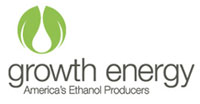While one biofuels group has expressed concern about Open Fuel Standard legislation, the three main ethanol organizations in the country are in favor of it.
 Renewable Fuels Association President and CEO Bob Dinneen says they endorse the Open Fuel Standard Act introduced by Representatives John Shimkus and Elliot Engel. Additionally, the RFA has endorsed similar legislation offered by Senators Tom Harkin and Richard Lugar. “Ethanol remains the only proven, widely available alternative to gasoline today and will so for the foreseeable future,” Dinneen said. “Investments in vehicle technologies that can accommodate a wide range of ethanol blends will necessarily expand the market for ethanol and create new opportunities for developing and nearly commercial ethanol technologies. More ethanol-ready vehicles are a critical component to the nation’s strategy to end our addiction to oil.”
Renewable Fuels Association President and CEO Bob Dinneen says they endorse the Open Fuel Standard Act introduced by Representatives John Shimkus and Elliot Engel. Additionally, the RFA has endorsed similar legislation offered by Senators Tom Harkin and Richard Lugar. “Ethanol remains the only proven, widely available alternative to gasoline today and will so for the foreseeable future,” Dinneen said. “Investments in vehicle technologies that can accommodate a wide range of ethanol blends will necessarily expand the market for ethanol and create new opportunities for developing and nearly commercial ethanol technologies. More ethanol-ready vehicles are a critical component to the nation’s strategy to end our addiction to oil.”
 American Coalition for Ethanol (ACE) Executive Vice President Brian Jennings says the legislation offers a wide range of fuel choices for both consumers and energy independence advocates. “ACE strongly supports the Open Fuels Standard because it provides consumers with meaningful fuel choices, including American-made ethanol. With gas prices hovering at four dollars a gallon, and with oil companies unapologetic about massive profits, and refusing to even consider changes to their favored tax status, it is time for us to create real competition in the fuel marketplace, and this legislation does just that,” he said.
American Coalition for Ethanol (ACE) Executive Vice President Brian Jennings says the legislation offers a wide range of fuel choices for both consumers and energy independence advocates. “ACE strongly supports the Open Fuels Standard because it provides consumers with meaningful fuel choices, including American-made ethanol. With gas prices hovering at four dollars a gallon, and with oil companies unapologetic about massive profits, and refusing to even consider changes to their favored tax status, it is time for us to create real competition in the fuel marketplace, and this legislation does just that,” he said.
 “Each additional Flex Fuel vehicle on the road gives consumers a choice in their fuels, while lowering the price at the pump and strengthening our energy security,” said Growth Energy President Jim Nussle. “Our nation’s dependence on foreign oil is unsustainable and is hurting our economy and national security. It’s time to invest in smart policies like these that will create competition in the fuels market and break the stronghold that oil companies and Middle East cartels have on our nation.”
“Each additional Flex Fuel vehicle on the road gives consumers a choice in their fuels, while lowering the price at the pump and strengthening our energy security,” said Growth Energy President Jim Nussle. “Our nation’s dependence on foreign oil is unsustainable and is hurting our economy and national security. It’s time to invest in smart policies like these that will create competition in the fuels market and break the stronghold that oil companies and Middle East cartels have on our nation.”
H.R. 1687, the Open Fuel Standard Act of 2011, would require that 50 percent of new automobiles in 2014, 80 percent in 2016, and 95 percent in 2017 would be warranted to operate on non-petroleum fuels in addition to, or instead of, petroleum based fuels.

